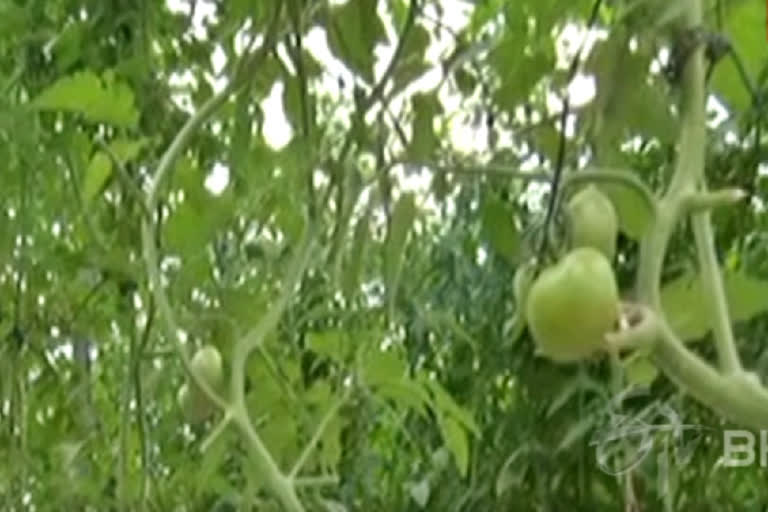Raipur: With technology taking over everything, agriculture is no exception. A special type of tomato is being cultivated at the Indira Gandhi Agricultural University, Raipur, that does not require soil. This is not a new concept in foreign countries, but Chhattisgarh is one of the foremost states to experiment with cocopeat technology.
According to scientists, soil pollution is affecting the quality of vegetables cultivated, which further has a detrimental effect on people's health. Although a little expensive, tomatoes grown with Cocopeat technology, which is a soilless method of growing crops, are considered beneficial. To further share his inputs on cocopeat technology, agricultural scientist G L Sharma discussed at length the whole procedure with ETV Bharat.
Sharma said that it was during research that they produced tomatoes through cocopeat technology. The experiment was a success with good quality output. One of the many merits according to the agricultural scientist is that cocopeat farming requires less space. It is apt for modern-day farming with open space restricted to gardens, rooftops and balconies.


